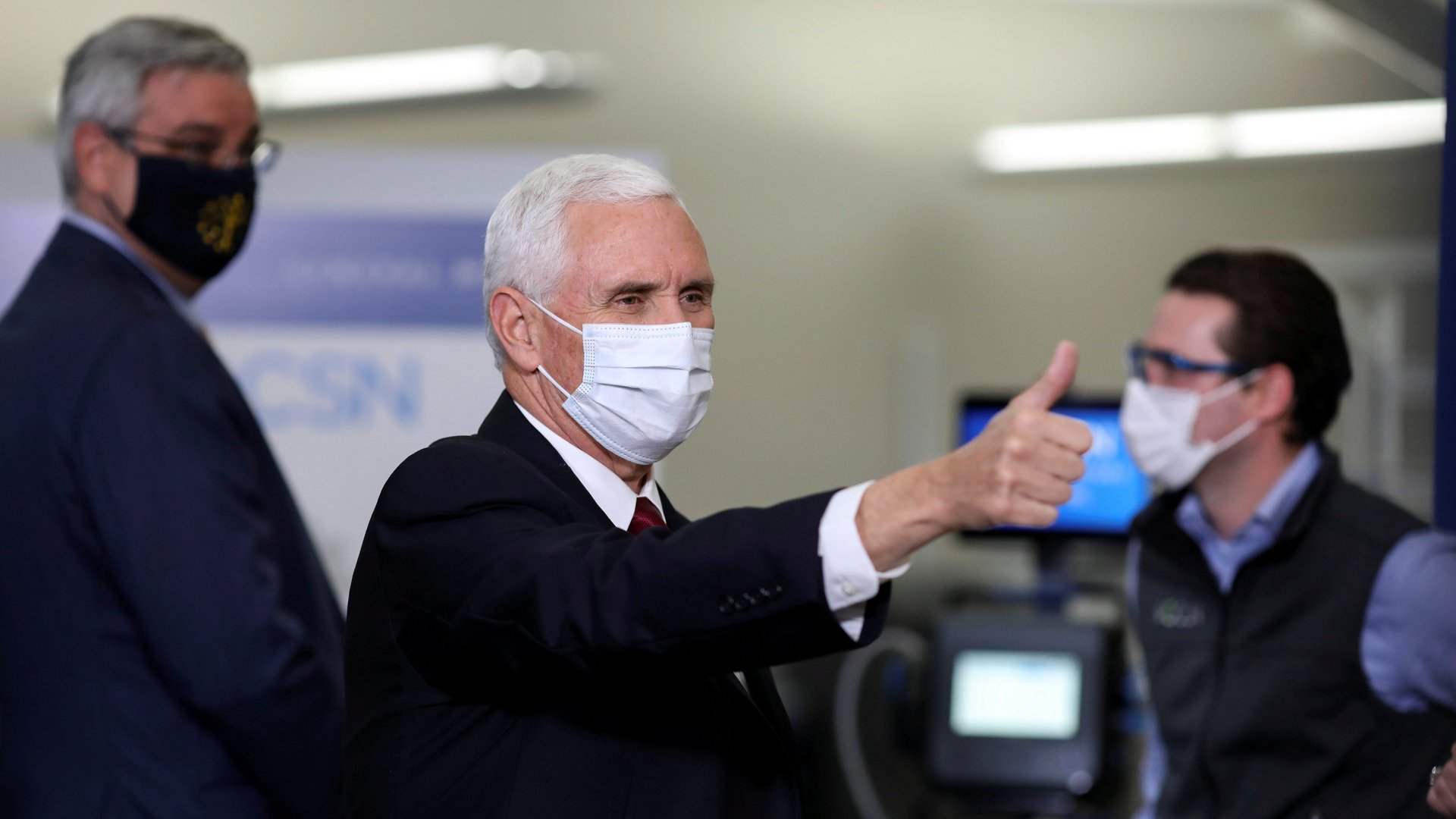Politicians are struggling with face-mask optics
To mask or not to mask?


To mask or not to mask?
That is the question facing today’s politicians as they contemplate lifting the lockdown measures that have kept businesses closed and people off the streets for weeks. In many countries, wearing a mask in public is optional, but recommended. The World Health Organization says that wearing a mask doesn’t guarantee that healthy people won’t get infected, and argues they should be reserved for sick people and health workers.
But there is a debate about this, and more countries are choosing to mandate masks in public spaces as part of their push to return to normal life. Now, wearing one (or not) has become politically charged, and public officials are the very public face of that debate.
Rarely has a tiny piece of fabric taken on such importance in global politics. For public figures, wearing a mask conveys the idea that they are taking the threat seriously. Not wearing one can carry a message of its own—either that they think people are overreacting, or that they consider themselves to be above it.
Some world leaders have chosen to wear masks in order to de-stigmatize the practice. Slovakian president Zuzana Caputova has gone viral on Twitter for wearing face masks that match her outfits during press conferences and her swearing-in ceremony. Japanese prime minister Shinzo Abe wore one, as did all his advisors, while he declared a nationwide state of emergency in mid-April. Leaders around the world, from Greek prime minister Kyriakos Mitsotakis to Michigan governor Gretchen Whitmer, have posted photos of themselves wearing masks on social media, and advocated for others to do the same.
The opposite is also true. World leaders who have sought to downplay this outbreak have chosen to forgo masks, even when recommended by health officials. In the halls of Washington, DC politics, as Politico reports, “wearing a mask is for smug liberals,” while “refusing to is for reckless Republicans.”
Donald Trump says that wearing a mask is a personal choice, and told reporters he was “choosing not to do it.” US vice president Mike Pence toured the Mayo Clinic and spoke to a patient who formerly had Covid-19 without wearing a mask. He was strongly criticized for this, and wore a mask two days later while visiting a General Motors plant in Indiana. In Brazil, president Jair Bolsonaro, who has referred to Covid-19 as the “little flu,” generally does not wear a face mask while out in public.
The trouble with how inconsistent public officials are in wearing masks is that it adds to the public’s confusion over whether they should wear one. Not helping matters are leaders who wear masks incorrectly. In China’s Wuhan, mayor Zhao Xianwang wore his mask upside down. Governor Ron DeSantis of Florida wore an N95 mask during a press conference but left the bottom strap unattached. Brazil’s Bolsonaro (video) and the deputy prime minister of Belgium struggled to put theirs over their mouths.